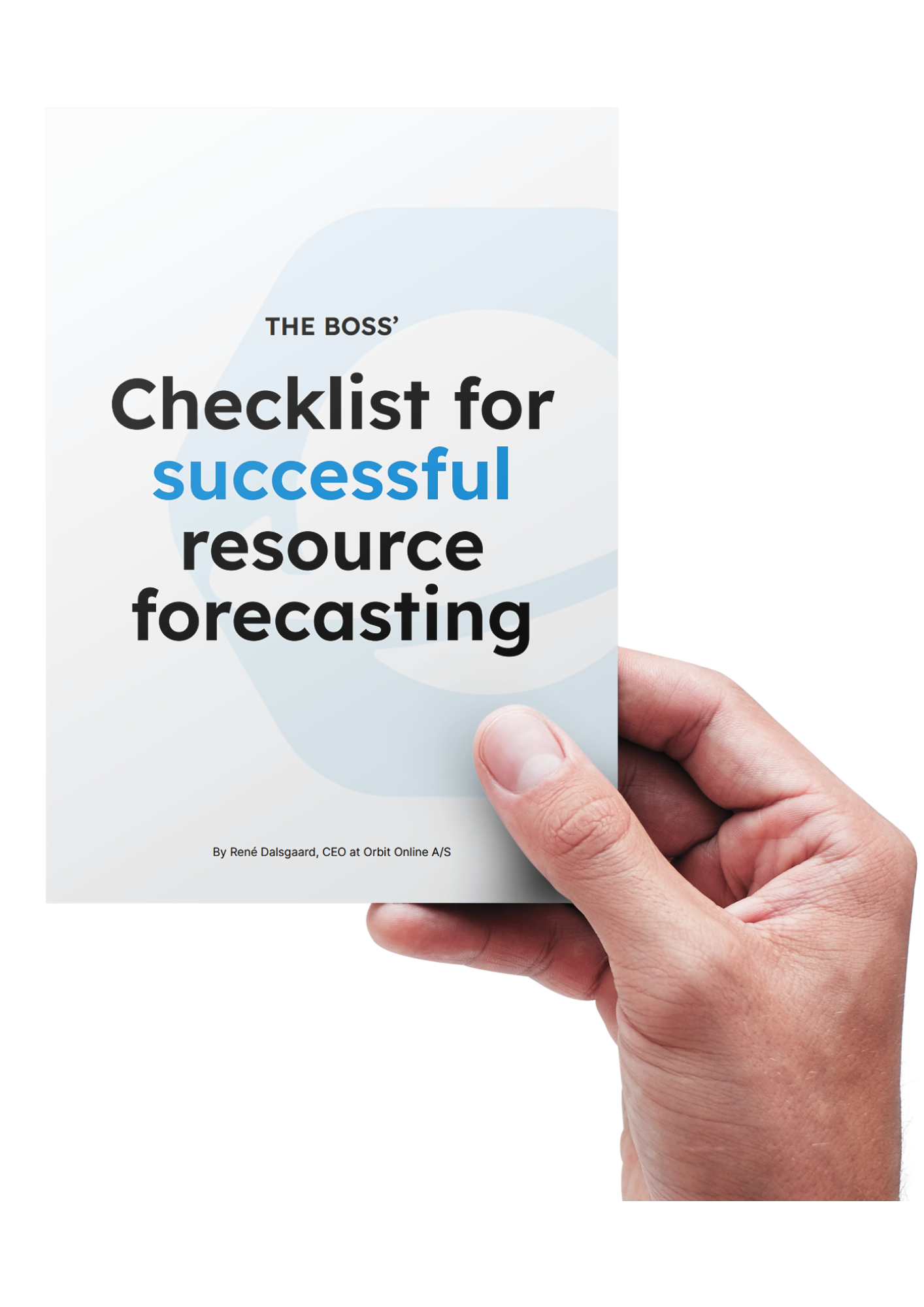Why businesses fail in forecasting their resources
How to fast-track your resource management
René Dalsgaard
One of the main reasons that organisations struggle to forecast predictions is that their workflows separate the Work Centres and departments.
Data silos and outdated data often constitute a hindrance to maintaining the resource overview within the company.
Lack of overview can result in human errors such as overlooked deadlines and miscommunication - or in the worst case, overbooked employees who have to work overtime to keep up.
In peak work situations like these, you risk having your employees experience troubles with concentration and ultimately stress, which can cost the company dearly in the long run.
In this short article, we focus on how you can overcome these problems and get started with effective resource management.
Discard your spreadsheets
You are probably familiar with one of the following scenarios:
- Your spreadsheet shuts down suddenly and unexpectedly – resulting in lost changes due to the lack of an "autosave" function.
- Some of your colleagues have mistakenly overwritten the golden formula that otherwise spared you several hours of manual copy/paste work in your daily life.
Both scenarios pose major annoyances that can be costly in terms of wasted time and lost work that needs to be redone.
To avoid unnecessary extra costs, you should first and foremost discard your spreadsheets - and think of more intelligent, digital solutions, for forecasting resources.
Resource forecasting across the business
Detailed and accurate resource forecasting is difficult to achieve if the right data is not available and up to date. Therefore, you would benefit greatly from making the organisation's data active at an operational level. This ensures that everyone in the organisation will be able to access and utilise data at any time - across departments and roles:
- Sales can quickly respond to a delivery request - even on complex products.
- HR can be at the forefront of hiring new employees who have matching competencies concerning future tasks.
- Project managers can easily plan and get an overview of the competencies involved in their projects.
- Team Leaders can easily spot bottlenecks and the risk of delays. With the resource overview, they will be able to quickly prioritise deadlines and milestones as needed and assign employees with the correct skills and time to perform the work.
Operational data opens the possibility for the organisation to work more efficiently with resource management – as an uncomplicated and integral part of your everyday life.
The checklist for successful resource forecasting
Begin planning your resources better today

More questions about business process management?
What is the importance of resource forecasting?
Resource forecasting is important because it helps organisations plan and allocate their resources in an efficient and effective manner.
This can help organisations save time and money and can also help prevent delays and disruptions in project execution.
Furthermore, by accurately forecasting resources, organisations can ensure that they have the right amount of resources on hand to meet the demands of their customers and stakeholders.
What is forecasting in resource management?
Forecasting in resource management involves using data in a digital solution that makes it possible to make predictions about future resource needs. This can include forecasting the demand for a particular product or service, as well as forecasting the availability of resources.
What is the starting point for resource forecasting in a project?
The starting point for resource forecasting in a project is typically the project scope and schedule. The project scope defines the specific goals and objectives of the project. The project schedule outlines the timeline and sequence of activities that need to be completed in order to achieve the project goals.
By analysing the project scope and schedule, organisations can determine the specific resources, such as competencies and skills of the project participant, that will be needed to successfully complete the project. This information can then be used as the basis for resource forecasting.



